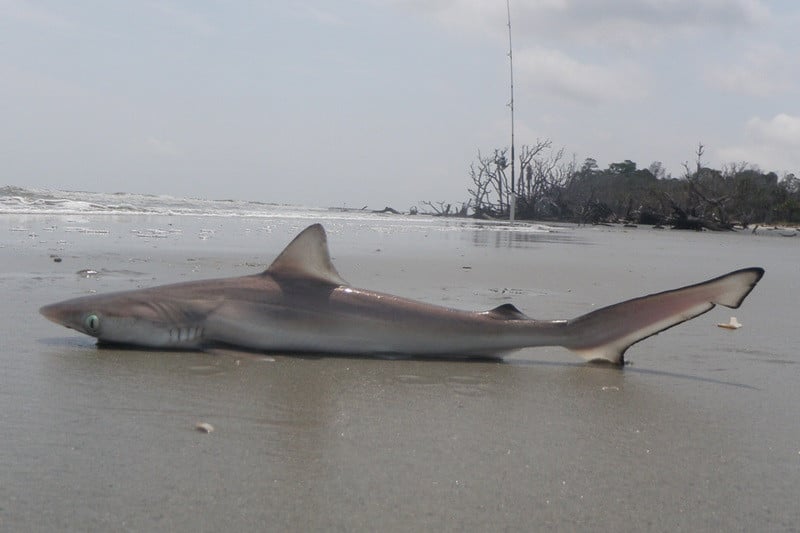Researchers have found cocaine in sharks near the Brazilian coast. This is the first instance of the medication being discovered in wild sharks.
According to a recent study that was covered by Scientific American and published in Science of the Total Environment, all 13 sharks that were analyzed tested positive for cocaine in both their liver and muscles.
According to research co-authors Enrico Mendes Saggioro and Rachel Ann Hauser-Davis, an ecotoxicologist and biologist at Brazil's Oswaldo Cruz Foundation, the consequences for the sharks are still unknown. Hauser-Davis pointed out that "nobody has ever studied the behavioural or physiological impacts of cocaine in sharks," and that cocaine is simply one of numerous pollutants that have an impact on these apex predators.
“We detected high levels of metals, 'forever chemicals' [PFASs], pesticides, and polycyclic aromatic hydrocarbons, including PCBs and PBDEs, in over 30 shark and ray species,” stated Hauser-Davis. PBDEs, which were used as flame retardants but can affect hormones and brain development, are known carcinogens; PCBs were outlawed in the US in 1976 and internationally in 2001.
Mendes Saggioro discovered cocaine in Rio de Janeiro river water, which gave rise to the idea of testing sharks for drugs. With an estimated 1.5 million cocaine users, untreated sewage with drug traces frequently finds its way into Brazil's waterways. To avoid detection, drug dealers occasionally throw cocaine into the water. Although a 2023 Discovery Channel documentary featured sharks examining fictitious cocaine packets close to the Florida Keys, scientists think waste and tainted prey are more plausible sources.
The average amount of cocaine found in the tissue of Brazilian sharpnose sharks (Rhizoprionodon lalandii) investigated in this study was 23 micrograms per kilogram. Male concentrations were lower than females, and the fact that half of the females captured were pregnant suggested that the virus might have spread to developing fetuses.
"Adults may have better-developed systems to metabolise these substances, but a developing foetus may not," said Chris Lowe, a marine biologist and director of the Shark Lab at California State University, Long Beach.
Mendes Saggioro intends to extend the testing to assess the level of contamination to migratory fish and rays. The report emphasizes two key points: do not throw rubbish, including illicit narcotics, into the ocean; and do not consume sharks because of overfishing and pollution.
Please don’t dump your trash, including illegal drugs, into the water,” urged David Shiffman, a marine conservation biologist at Arizona State University.



























